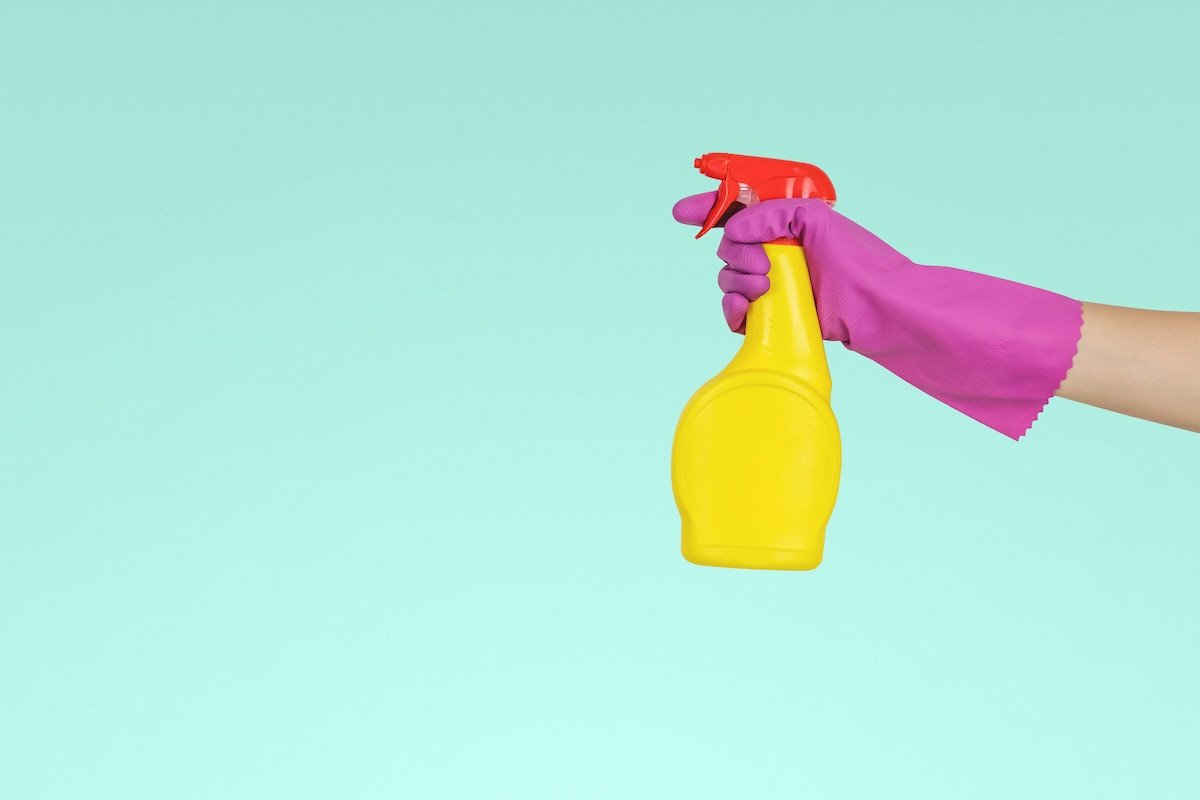We all have good habits we badly want to start and bad work habits we should leave behind.
Habits are behaviors or actions you perform regularly. Some might be
habits you do at work, such as leadership behaviors. Others might be
your actions in the morning while getting ready for the day. These kinds of rituals happen automatically. We do them instinctively, almost without thinking.
Why is it so important to adjust our work habits? Although behavior change is important for negative habits, it’s just as important to focus your attention on building good habits.
Developing good habits can create meaningful, positive change in your life. Forming those kinds of positive habits is an ongoing process that takes time and commitment.
The 5 Work Habits That Changed My Career
For example, when I was 23 years old, I could work a full day, head straight to the gym, catch dinner with a friend, and go out afterward—and this would all happen on a Tuesday. If I tried that today, I would need to sleep for a day to catch up. And that's without considering all the logistics of childcare and beyond! So, yes, some of our habits progress as our lives and careers evolve.
However, some habits become so ingrained that we don't even recognize them as damaging or irrelevant. They just are. That's why I decided to enact a habit audit in my personal and work life. I found ways to
cut out bad habits, reduce superfluous ones, and create habits that suit my lifestyle at this stage in my career. I wanted to share my favorite work habits that have helped to transform my workdays.
1. Work With Someone Whose Talents Are Markedly Different
Culture fit has been a buzzy workplace phrase over the last few decades. However, more and more, I see the need for
culture adds.
To me, culture fit often translates to a "type" of employee. Instead of leadership searching for hires that add to the organization or who fill that "missing puzzle piece," they hire the same person repeatedly. If you have ever worked in an organization filled with clones of your boss (especially when the boss is....less than impressive), you know how alienating that can be.
One of the most valuable insights I have gained throughout my career is that working alongside coworkers with different talents, personalities, and work styles leads to far more productive environments than working with clones.
I also believe that work environments looking for cookie-cutter fits are more prone to cutthroat competition, gossip, and increased levels of burnout. If everyone has the same talent set and qualities, they are more prone to compete to become the high performers, to be recognized as the uncontestable "best" in the office.
In workplaces that prioritize culture and talent, I have found that competitive nature has been replaced by collaboration and increased learning.
Here at Career Contessa, my work style differs from that of my colleagues. In my time, I have learned how to build up some of my biggest weaknesses. As a more creative-minded employee, I needed to learn more effective time management skills, how to take constructive feedback, and how to build a realistic schedule when it comes to project management.
Okay, I am seriously still working on the realistic deadline and project management piece. Luckily, Lauren McGoodwin is a pro when it comes to all things organization and to-do lists.
If you can work with folks that are different than you, absolutely go for it. In a job search, learn how to showcase your differences. Show your future leadership how your work qualities, your work style, and even your healthy habits are an essential add for their organization. If you can show the unique value you bring, they can't afford to miss out.
2. Always Be Passively Job Searching aka Keep Your Eyes Peeled
There are two things I always keep my eyes peeled for: local real estate and the job market. Obviously, the latter is important for more than one reason, because I work for a career site. However, I started the habit of keeping my eyes peeled long before I came to Career Contessa.
Keeping your eyes peeled means keeping your options open. I like to understand the changing industry trends, the job market, notable companies, hirings, firings, layoffs, and everything in between. As someone who entered the workforce in 2008, I know that everything can change in an instant. As soon as my graduating class caught their mortarboards and tassels at graduation, all the jobs we were promised suddenly disappeared.
Therefore, I think it's important to keep your eyes on the job market—even when you love your job and your company. It's good to have some kind of loose backup plan just in case things change.
Things to Consider in a "Passive" Job Search
- Companies where you might like to work
- Hiring trends for your industry and your job position
- Skills that are required to move up in your career
- Building said skills with freelance opportunities
- Organizations where former colleagues and professional contacts are currently employed
- Your core values and how to ensure your current and future job positions match them,
I'm not advising you to apply for jobs as part of your daily routine. However, it's a good work habit to know what's going on outside of your own workplace. That way, the next time you're entering the job search process, you better understand the landscape—and your intended place in it!
3. Managing Tasks by Importance + Time Spend
Have you ever had a to-do on your list that you just keep moving to the next day?
Suddenly, it's two weeks later, and you still haven't responded to that one email. The silliest part is that the task, once completed, only took about five minutes of your time.
This was a problem I continuously encountered. Like many of us, my tasks and responsibilities come in all shapes and sizes. While I know things like creating outlines and writing articles are best saved for early in the workday, the smallest tasks fell through the cracks.
If you have ever been a victim of email correspondence with me, let me apologize right here. To fix this issue, I started each day by prioritizing tasks by importance, brain power needed, and predicted time spend
Task Management Filters
- Importance: This is usually the easiest filter. Is your task HIGH PRIORITY, MEDIUM PRIORITY, or LOW PRIORITY?
- Brain Power Needed: I label these MAXIMUM BRAIN POWER, ATTENTIVE BRAIN POWER, and PODCAST BRAIN POWER. This is a big one for me, While writing and strategy tasks require MAXIMUM BRAIN POWER, tasks like data input likely only require PODCAST BRAIN POWER, which means I can likely listen to a podcast while completing the task.
- Time Spend: This final label really helps me plan my work week. Next to each task, I will either assign the time necessary to complete is (i.e. 45 minutes) or the time I intend to work on it (i.e. 10:15 am - 11:00 am). This also helps me to keep track of my productivity and make any future adjustments in my project planning.
I have yet to address two major elephants in the room.
When it comes to explaining my work routine, the importance of work-life balance, and how essential new habits have become in the past few years, I have to address the huge change that happened in my life. I became a mother in 2020 and welcomed my second son in 2023.
I'm not saying that parenthood has to change everything about your career, but I have yet met a working parent who could continue their life without any adjustments.
I have always loved reading, but I found that the time I had to devote to a good book was dwindling. Well, before I had kids, the lure of decompressing my doom-scrolling was just easier to access than the book collecting dust right next to my iPhone.
When I became pregnant with my second son, I made a new, huge boundary that has greatly impacted my life. I replaced most of my non-work screen time with a book. Like building a habit, I started with setting reminders in my daily planner or time-blocking time to reads. I started by attempting to read for 30 minutes a day. Soon, this daily task became a habit. Instead of watching television or succumbing to shopping ads or endless ASMR videos on Instagram, I read. When I had insomnia, I read. When I woke up at 3 am with a crying baby, I got him back to sleep—and read.
As a content writer, you could argue that reading and writing are essential to my career—and that's true. You could also argue that this habit really has more to do with my personal life—and that's true, too.
However, prioritizing reading taught me that I had wasted so much time on meaningless distractions. Therefore, I had less time for healthy habits that truly enriched my life. With this one small change to my daily routine, I read 80 books in 2023. Prioritizing reading also required a new honesty regarding social media habits and time management. Did I really have "no time" to spare—or was I using my time to better my mental health or personal happiness?
5. Set Reminders + Keep Reminders
it's easy enough to set reminders and block off time in my calendar, but keeping them? That's a whole different challenge.
Okay, this fifth one is very much a work in progress, so I hope you can relate. It took me a long time to understand why and how people live by their Google Calendars or project management tools. Couldn't they just remember their tasks? Why did folks need to set reminders for everything?
As I progressed through my career, I earned more responsibilities. Soon, I realized why everybody leaned on their calendars and notifications. I started to schedule everything—and I'd totally recommend doing so. However, scheduling your tasks, to-dos, and your breaks only works if you follow the schedule.
Recently, I realized I was pushing so many of my digital reminders to the side. Suddenly, creating deadlines didn't boost my productivity at all. In fact, it was a waste of time.
To this end, I cleared my entire calendar and rebuilt it. Now, when I add something to my calendar, I ask myself these questions:
Calendar Prioritization Questions
- WHY: Does this need to be on my calendar?
- REPEAT TASKS/RESPONSIBILITIES: If so, when should it be scheduled? How often does it need to be re-scheduled?
- PROJECT MANAGEMENT: When is the deadline for this project or task? Does it need to be broken into several time slots?
- PUNCTUALITY: What is my deadline? Have I created space in case of an unexpected obstacle or emergency?
I know this sounds like a lot, but it's helpful—especially for those of us who have many competing priorities. Procrastination and unexpected interruptions happen to all of us. However, if we can infuse some best practices into our time management and productivity work habits, we're setting ourselves up for success!
Other Good Work Habits
Like any mid-career person—especially one who writes about the workplace and its challenges—I like to think I am self-aware regarding my weaknesses and weaker habits.
- For example, I think I have good communication skills, but my boundary-building needs some real work.
- I believe I lead with empathy, but I sometimes feel completely lost in personal problems.
- I can find serious momentum and moments of flow in certain seasons of work, while others can leave me feeling close to burnout and in serious sleep debt. If anyone has the secret to regularly reaching flow state, please contact me!
Here are some of the good work habits we always hear about, and our best advice for working on them and through them.
- Effective Communication
- Boundaries
- Healthy Work-Life Balance
- Task Management
- Burnout + Taking Regular Breaks
- Career Direction
- Job Satisfaction
- Real Problem-Solving (For example, healing the deep, root problem instead of covering it with a bandage.)
- Collaboration (especially when dealing with problem coworkers or toxic bosses)
Of course, if you have any great advice, please shoot us a DM on Instagram or email us at editorial at career contessa dot com.










